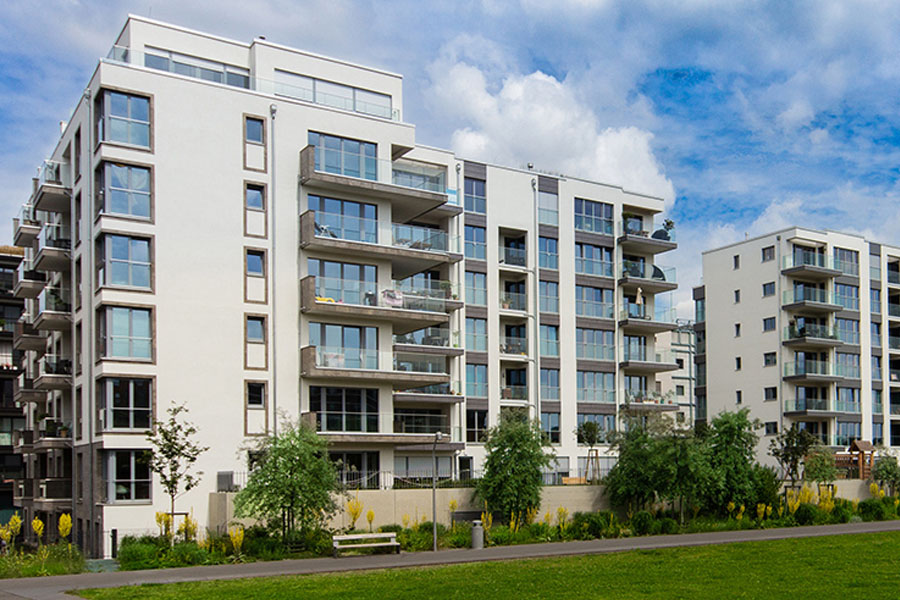Co-op building management is the backbone of a cooperative’s day-to-day operations. It determines how well a building runs, how issues get resolved, and how residents stay informed. A successful co-op relies on proper management.
What is Co-op Building Management?
Co-op building management refers to the oversight and maintenance of a cooperative housing community. In a co-op, residents don’t own their unit outright. Instead, they own shares in a corporation that owns the building. Residents own shares, giving them the right to live in their units.
At the heart of each co-op is a cooperative association. Every resident becomes a member of this association and gains voting rights. This means they can vote in the board elections and on community-wide decisions.
Every co-op has a board, with board members elected by the residents. Board members are also fellow residents or shareholders, assigned to manage the association. The co-op board is responsible for making decisions, collecting dues, and enforcing rules. Since they are volunteers, they don’t receive payment or special benefits.
Co-op Buildings vs Condominiums
At first glance, co-op buildings and condominiums may seem identical. Both have units, shared amenities, and some kind of community leadership. The key difference lies in ownership.
What is a co op apartment? In a co-op, a corporation owns the entire building, with residents buying shares and signing a proprietary lease. This lease gives them the right to live in the units.
In contrast, in a condominium, individuals own their unit outright. These individuals also share ownership of the common areas and elements.
Because co-op shareholders are also corporate stakeholders, they have a greater say in the building’s operations. Additionally, co-op boards tend to have more power when it comes to screening buyers, setting rules, and approving renovations.
What Goes Into Cooperative Property Management?
Coop management involves several key responsibilities. These responsibilities include financial management, building maintenance, vendor management, communication, insurance oversight, enforcement of rules, and ensuring legal compliance.
1. Financial Management
A big part of co-op building management is overseeing the association’s finances. This includes creating an annual budget, collecting fees, paying bills, and planning reserves. The board reviews and approves the budget each year. For major financial decisions, shareholders typically get a say.
Cooperatives must also coordinate audits. In Washington, DC, Section 29–933 requires audits at the end of every fiscal year, but the auditor must not be a director or officer of the board.
2. Building Maintenance
Routine maintenance keeps the building safe, clean, and functional. This includes services like cleaning, trash removal, landscaping, and pest control. Larger tasks include elevator service, HVAC checks, and roof inspections.
It is important to schedule preventive maintenance. This type of maintenance helps prevent costly repairs and extends the lifespan of key components. Coop management involves tracking these tasks, hiring the right contractors, and ensuring the completion of work.
3. Vendor Management
Co-ops rely on outside vendors for many of their needs. This can include plumbers, electricians, cleaning crews, lawyers, and accountants. Finding, hiring, and overseeing these vendors falls on the shoulders of the coop board.
Board members solicit bids, review contracts, and negotiate prices to ensure optimal outcomes. They also monitor the performance of existing vendors to ensure they perform well. It is also essential to maintain a healthy working relationship with vendors to ensure better service and responsive communication.
4. Communication
Good communication is essential in any cooperative association. The board must communicate updates to residents, including any rule changes, budget decisions, meetings, and projects. This typically involves sending newsletters, emails, and notices to keep them informed.
Communication also works the other way around. When residents have concerns or complaints, board members must actively listen and respond to them. Residents are the lifeblood of a co-op community, so it is essential to keep them involved and satisfied.
5. Insurance
Every co-op association must carry the proper insurance coverage to protect the building and its residents. This includes property insurance, liability coverage, directors and officers (D&O) insurance, and even umbrella policies.
Co-op building management involves reviewing policies annually, comparing quotes, and ensuring coverage is up-to-date. The board must work with insurance agents or brokers to mitigate risk and ensure the association’s needs are covered.
Insurance is especially important after a fire, flood, or lawsuit. The right coverage can save the co-op from financial ruin and prevent special assessments.
6. Rule Enforcement
Each co-op has its own set of rules and bylaws. These cover noise levels, pet ownership, architectural modifications, and subletting. The board is responsible for enforcing these rules to maintain order and protect the rights of all residents.
The board must enforce the rules consistently and fairly. Selective enforcement can make the association vulnerable to liability and even render rules void.
Rule enforcement involves inspecting for violations, issuing notices, and applying penalties when necessary. Boards must follow their governing documents when implementing procedures for addressing violations. It is also important to give residents a chance to respond or appeal decisions.
7. Legal Compliance
Co-op buildings must follow federal, state, and local laws, in addition to their governing documents. These laws include, but are not limited to, fair housing rules, fire codes, building safety laws, and employment regulations. Boards must also keep up with changing laws.
Of course, many boards aren’t well-equipped to handle legal issues. As a result, board members may need assistance from attorneys or other legal professionals.
Self-Management vs Professional Management
There are two types of co-op building management: self-management and professional management. Self-managed co-ops rely on the volunteer board members alone, without the help of a professional manager. That said, many communities hire a management company or an independent manager for assistance.
When deciding between self-management and hiring a co-op property manager, boards should consider the association’s needs, size, and complexity. In a self-managed co-op, the board handles most or all of the responsibilities alone. While this approach can save money and give the board more direct control, it also requires a more significant time commitment and a high level of expertise.
A professional manager, on the other hand, can take care of the daily operations and administrative work. Companies offer more resources and connections, including access to software and online portals. Of course, the manager doesn’t have decision-making authority, instead turning to the board for the final say.
A Helping Hand
Co-op building management requires a significant amount of time and effort, yet it remains integral to the success of cooperative communities. If a coop decides to turn to professional management, finding the right company is essential.
TNWLC offers co-op management services to homeowners associations, condominiums, and cooperatives in Washington, DC. Call us today at (202) 483-8282 or contact us online to get started!



